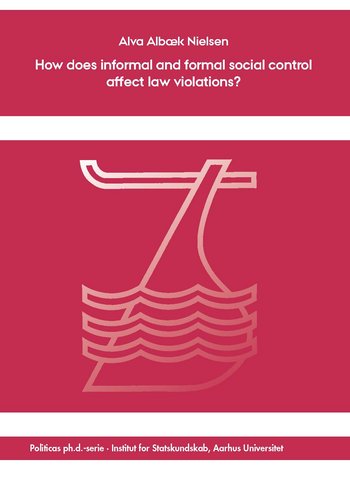Alva Albæk Nielsen
How does informal and formal social control affect law violations?

This dissertation investigates how informal and formal social control affects individual law violations. The research questions are: How do parental social bonds affect law-breaking in adolescence? How are social bonds to a romantic partner related to law-breaking in adulthood? What is the effect of longer incarceration on recidivism in adulthood? The dissertation thus investigates the impact of informal social control at different points in the life course and elaborates on how one of the most intrusive formal social control mechanisms – imprisonment – affects the individual. The dissertation makes several contributions. First, it examines whether the impact of parental social bonds depends on parental convictions. Second, it explicitly investigates the theoretical argument in informal social control theory that not just any relationship will aid the desistance process, but only a relationship with strong social bonds. Third, the dissertation makes use of fine-grained panels based on administrative register data for each year as well as survey data, employing state-of-the-art quantitative methods for estimating unbiased results. Fourth, the dissertation investigates social control (both informal and formal) in the contemporary Scandinavian context. The results suggest that social bonds matter. Importantly, it does not seem to matter if the person to whom the individual has the social bonds is breaking the law him or herself. While social bonds and thereby informal social control are predictive of law-breaking, formal social control in the form of longer incarcerations is not.
![]() Ophavsretten tilhører Politica. Materialet må ikke bruges eller distribueres i kommercielt øjemed.
Ophavsretten tilhører Politica. Materialet må ikke bruges eller distribueres i kommercielt øjemed.